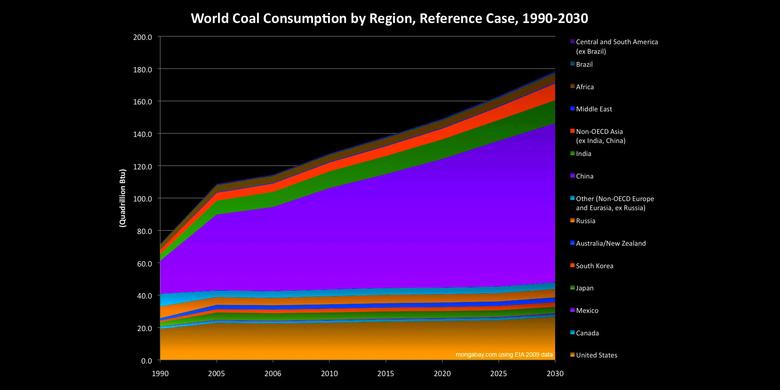
NO COAL FOR AFRICA

WNN - 20 January 2020 - The UK will no longer fund coal projects overseas, British Prime Minister Boris Johnson announced today during his opening address at the UK-Africa Investment Summit in London. Instead, the government will "turbo-charge" its support for low-carbon energy sources, he said, noting that the UK has cut its CO2 emissions by 42% from the 1990 level. The country is the host of the next round of UN climate talks - COP26 - in November.
In June 2019, the UK became the first major economy in the world to pass laws to end its contribution to global warming by 2050. Nuclear power provides about 20% of the UK's electricity, but seven of the country's eight operating plants will be retired by 2030. Johnson did not mention nuclear power specifically during his speech today, but expressed his "passionate" support for it when he addressed the House of Commons for the first time as prime minister in July last year.
"Climate change and loss of biodiversity are issues that affect us all and I know that many of your countries are already on the frontline in the fight against both and I look forward to seeing many of you again when the UK hosts COP26 in Glasgow later this year. And of course one of the many reasons we were chosen to host COP26 was the incredible speed with which we have cleaned up our domestic energy industry," Johnson told delegates at today's summit.
"A decade ago we were one of the most carbon-heavy nations in Europe. Today we are a world leader in offshore wind. We regularly generate more of our electricity from renewables than from fossil fuels. Regularly. And we have almost entirely weaned ourselves off coal. But there's no point in the UK reducing the amount of coal we burn if we then trundle over to Africa and line our pockets by encouraging African states to use more of it. Is there? We all breathe the same air, we live beneath the same sky, we all suffer when carbon emissions rise and the planet warms.
"So, from today, the British government will no longer provide any new direct official development assistance, investment, export credit and trade promotion for thermal coal mining or coal power plants overseas. To put it simply, not another penny of UK taxpayers' money will be directly invested in digging up coal or burning it for electricity. And instead we’re going to focus on supporting the transition to lower and zero-carbon alternatives.
"First by helping you to extract and use oil and gas in the cleanest, greenest way possible, and we're world leaders in that and have much to share. But also by turbo-charging … our support for solar and wind and hydro and all the other carbon-free sources of energy that are around us, and are just waiting to be harnessed. That process is already under way because a whole host of British companies are already working with national governments across Africa and around the world to increase renewable capacity.
"There's a huge myth that you've got to choose between reducing emissions and raising economic growth, but look at what happened here in the UK. Actually, we have cut CO2 emissions by 42% since 1990 and yet GDP has gone up by 67%. And we stand ready to help you do the same. Tackling the causes of climate change, while also delivering the power needed to unlock the potential of all our people and what an incredible potential that is."
Finance advisor
Last week, Johnson appointment Mark Carney, the outgoing governor of the Bank of England, as his finance adviser for COP26. Carney will carry out the role alongside his new post as UN special envoy for climate action and finance.
Under Carney's six-year tenure as governor, the Bank of England was the first central bank in the world to work on the implications climate change could have for the financial system. After their meeting in Downing Street on 16 January, Johnson said Carney will be "an invaluable addition to the COP26 team".
"His expertise will help the UK to lead in mobilising businesses and investors to support our net-zero revolution," Johnson said. "Hosting COP26 in Glasgow will be a golden opportunity for the UK and the global community as we push for as many countries as possible to follow our lead and commit to ending their contribution to climate change by 2050."
Carney has called for enhanced reporting of climate risks by both listed companies and investors, primarily through his work with the international Financial Stability Board and its Taskforce on Climate-related Financial Disclosures. He has also called for more advanced stress testing of climate-related scenarios and in 2021 the Bank of England is planning to stress test the resilience of large British banks and insurers against the economic threats posed by climate change and the low-carbon transition.
Carney said the climate talks and the UK's global leadership in financial services provided a unique opportunity to address climate change by transforming the financial system.
"To seize it, all financial decisions need to take into account the risks from climate change and the opportunities from the transition to a net-zero economy," he said. "The UK has a plan to do just that, and I look forward to working with the private sector, HM government, the Bank of England and all stakeholders to help make this promise of sustainable finance a reality."
COP26 President Claire Perry O'Neill said Carney's appointment was a "huge boost" to efforts to mobilise green investment across the global financial system.
According to the terms of reference for the role, Carney will "focus on embedding climate into every financial decision and creating a more sustainable financial system to support the path to net zero".
-----












